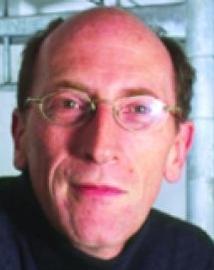But Fulcrum founding member, and partner Andy Ford denies that he sets out to find unusual projects. "They don't start out that way. Clients don't come to you and say 'we want something unusual'. But if you talk to them about the problem that they need solving, then the solution can turn out to be unusual."
Ford's early training as a mechanical engineer encouraged him to look at engineering challenges in this way. "You always need to analyse problems back to first principles. With buildings, the basic problem is that you are trying to make something that is comfortable for the whole year, wherever you are. You need to control the thing you are making – its materials, and everything else you can influence about it. Make the problem as simple as you can, and solve that."
After graduating from Bath University, Ford seemed destined to work for the diesel engine manufacturer which had sponsored his studies. "They made engines, from casting to testing – very much a manufacturing company. But at the end of the day there wasn't a role available there which really appealed to my interest in design."
But he did find something that suited his ambitions at Max Fordham. He was also inspired by the way the company was run. "They had a very democratic working philosophy. They had big office meetings where staff would discuss everything in an open forum. It was good training, and you could influence the business."
He mentions that salaries were also negotiated in front of the whole team – a nerve wracking experience which stood him in good stead later in the business world.
When it came to setting up Fulcrum, with another ex-Fordham's engineer, Ford says that he wasn't in it simply to run his own business. "Setting up Fulcrum was my way of changing what I was doing. I wanted to do something on my own, and I decided to take the risk." Although inspired by a decade at Fordhams, Ford emphasises that Fulcrum has a very different business model.
Ford started two companies at the same time. "The other business was to make custom-built wind surfers."
But he says that it became difficult to juggle both businesses, so he elected to concentrate on Fulcrum.
The first job for the consultancy was on a large domestic dwelling for which they created a straw bale heating system. The first large scale project was the redevelopment of the Royal Free Hospital site in North London to a housing scheme.
The company went from strength to strength, and now has around 80 staff, and high profile projects. Looking to the future, Ford says he's naturally keen for the business to grow. "We're working on the Natural History Museum extension at the moment, and it would be good to get more of those larger jobs."
The company is known for its commitment to sustainable buildings, and Ford feels that the rest of construction is in many ways catching up with Fulcrum's early work. "The Building Regulations are doing what we were doing ten years ago. Then, if we asked someone how much air leakage there might be from a building, you were working on wild guesses. Now that has changed, and there is more of that information available more easily." Ultimately, Ford's aim is to continue to dedicate the consultancy to matching best value for clients and a sustainable approach to buildings.
Source
Building Sustainable Design





















No comments yet